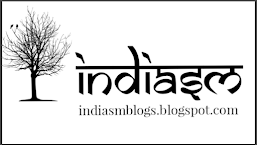“No man is an island, entire of itself; every man is a piece of the continent, a part of the main, …Any man’s death diminishes me, because I’m involved in mankind. And therefore never send to know for whom the bell tolls; it tolls for thee.” — John Donne
Welcome back readers, and as you can see, today our topic is "Vasudhaiva Kutumbakam". Many of us here are probably familiar with this Sanskrit phrase that means that the whole world is one single family. Let's have a deeper look at this divine phase.
From ancient times of this ancient country, the eternal truth of life “Vasudhaiva Kutumbakam” was enshrined or stated in its Maha Upanishad, the sacred book said to have been authored by not one but many enlightened divine souls. It is a philosophy that tries to foster an understanding that the whole of humanity is one family. It is a social philosophy emanating from a spiritual understanding that the whole of humanity is made of one life energy. Even we are of different colors, shapes, beliefs we are one family, diverse but united.
The Coronavirus (COVID-19) pandemic that is stalking the world as a scourge, breaking barriers of countries, races and religions should drive into our minds the significance of this philosophy, “Vasudhaiva Kutumbakam”. Nature has no borders. It does not separate one man from another as Hindu, Muslim, Christian, Black, White or Brown, old or young.
Oneness in diversity is exhibited even in nature with the appearance of a rainbow, which is an aggregation of diverse synchronous colors in the ethereal sky. When colors are separate they disperse and are not visible. By the magical prismatic effect of sun and rain clouds, the concerted reflection forms a sublime rainbow signifying harmony and equanimity.
Same way, this world is a beautiful combination of diverse languages, diverse traditions, and diverse existence. How can a drop of water from the ocean, be different from the others?
Respecting and celebrating cultures is the beauty of diversity. This is what is respecting the humanity and being human.
Universal love and brotherhood makes us understand the pains and pleasures of others and to be aware of it and to share the concerns.
But, does this thought applicable for today's world?
The world is a family, but it is not a happy family.
This phase does means we are a family, but Kauravas and Pandavas were also family, even Devas and Asura had the same origin.Rivalry manifests in Ayodhya where Kaikeyi is jealous of Kaushalya’s position as mother of the future king. Why so many stories of brothers fighting? And this is explained by the philosophy of the rishis, the ones who observed nature carefully. Even plants compete with each other for sunlight and water, and animals compete with each other for pasture and prey. In every herd and pack there is a pecking order to determine who gets the food and who gets the mate. There is anxiety over resources creating a battlefield everywhere. Yes, the world is a family, but it is not a happy family.
Realists like Chanakya did not believe in the rather romantic ‘the world is my family’ doctrine. For him, man was essentially an animal, who loved to dominate and be territorial. The essential nature of society was jungle law known in traditional Indian lore as fish justice (matsya nyaya), in which big fish eat the small fish, unless the small fish is cunning.
In Panchantantra, which are parables composed by Chanakya as per legend, ‘world is my family’ is the belief of a rather gullible person who ends up being consumed by the strong and the cunning. In one story, a cat uses this dialogue to gain the trust of an old blind vulture and eat the small babies under its care. In another story, a fox tries to trick a deer with this line, but the latter is saved by a crow.
According to Hinduism, nobility is born of effort, through enquiry into the divine (brahma-jigyasa). In the absence of effort, we function like beasts. Hunger and fear crumples our mind, makes us egotistical, more animal-like, seeking domination and territory. Wisdom un-crumples the mind, makes us more god-like, rising above the desire to dominate and seize territory, seeing everyone as a family member, who one has to care for. Once Brahma invited his sons to a meal and offered them food, but insisted they eat without bending their elbows. The brothers realised the only way to eat is to pick the food and feed the other brother. I feed you and you feed me. Reciprocity.
This was the first yagna — I give before I get. I do not take, like animals. Yagna, the primal Vedic ritual, is designed to evoke the humanity within us, so that we feed others, protect others, nourish others, and choose ‘love’ over ‘pecking order’ in the global family. All Pervading Consciousness in the whole Humanity is the Universal Consciousness and brotherhood present in each one of us. We all emanate from one supreme source to merge back to the same source. Through yagna, the Upanishads hoped, we would discover the whole world as our family, who we have to take care of. But, until then, Chanakya advised kings to be wary of man’s animal nature.
From this thought, we are going to start a new series of articles comprising of similarities between various cultures and traditions throughout the whole world. The main motive of these articles will be universal brotherhood and to uprise the oneness in ancient world. So stay tuned !!
And please comment and let me know your thoughts on vasudhaiva-kutumbakam :)




0 Comments
Please post your views